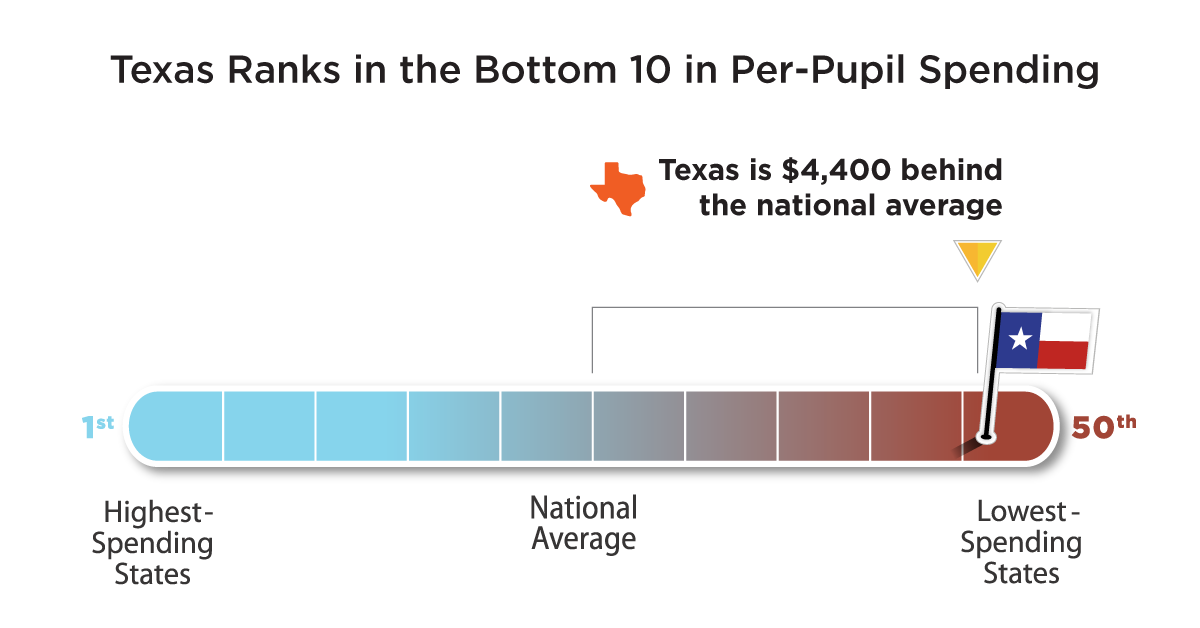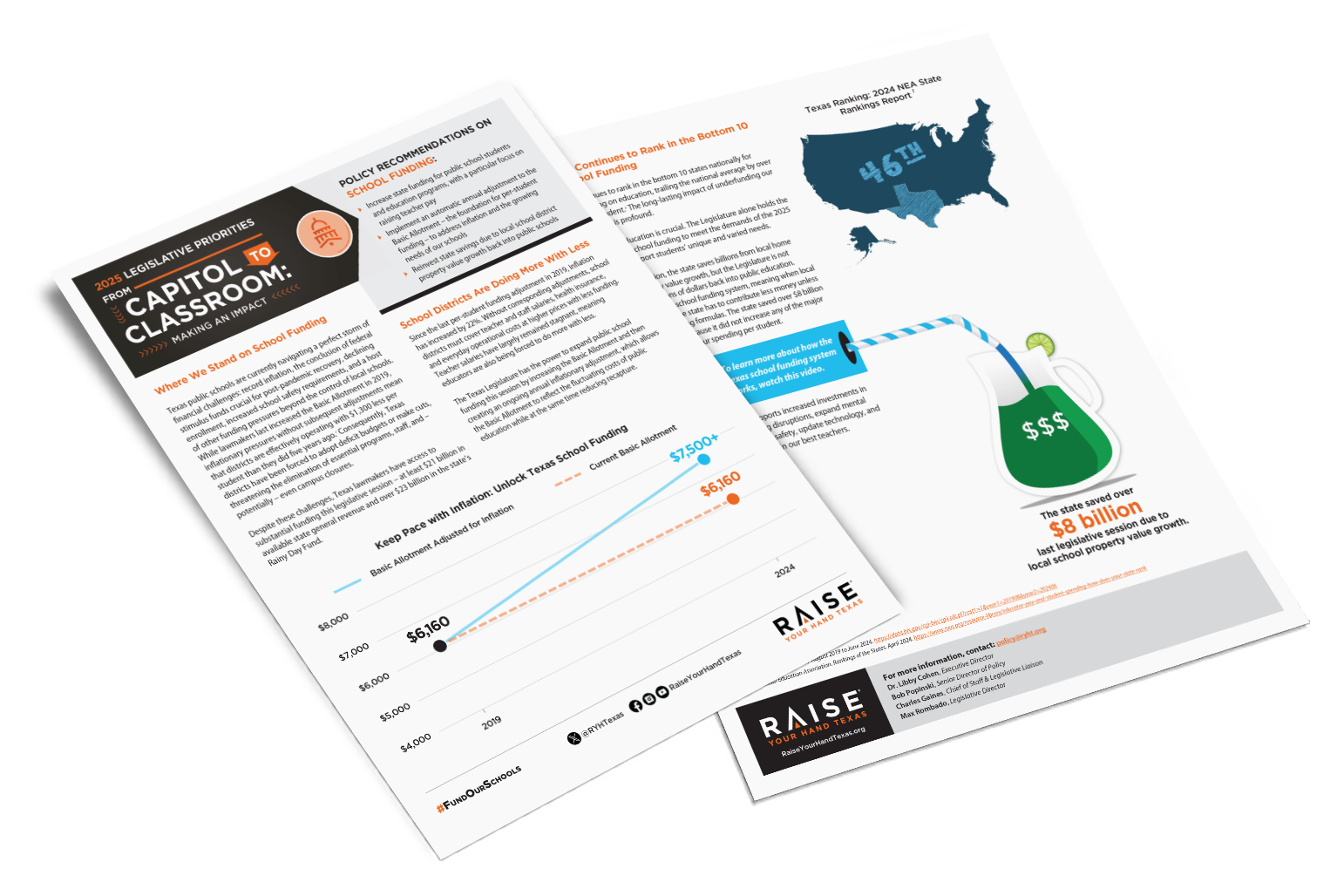School Funding
2025 School Funding Legislative Priorities
- Increase state funding for public school students and education programs, with a particular focus on raising teacher pay
- Implement an automatic annual adjustment to the Basic Allotment – the foundation of per-student funding – to address inflation and the growing needs of our schools
- Reinvest state savings due to local school district property value growth back into public schools


School Districts Are Doing More with Less
Texas public schools are currently navigating a perfect storm of financial challenges: record inflation, the conclusion of crucial federal funds for post-pandemic recovery, declining enrollment, increased school safety requirements, and a host of funding pressures beyond the control of local school districts.
However, the Texas Legislature last increased per-student funding in 2019, forcing local school districts to face dire and deep budget cuts. Rising inflation and subsequent adjustments mean districts effectively operate with $1,300 less per student than they did five years ago.

Texas Needs to Reinvest State Savings Due to Local Property Tax Increases Back into Our Public Schools
The state saves billions in public school funding because of the way our equalized funding system works. As local school district property taxes increase year to year, the Legislature has to put in less state aid to our funding formulas. The Legislature is making a decision not to reinvest the billions of dollars it saves back into public education.
The state saved over $8 billion[1] from increases in local property tax collections last legislative session. These state savings should have been reinvested back in our public schools to help increase our overall per-pupil funding.

Making an Impact
Investing in public schools should be a priority in every legislative session. Raise Your Hand Texas supports an equitable school finance system that, at the very least, funds Texas students at the national average for per-pupil spending.
Texas lawmakers have access to substantial funding in the 2025 Legislative Session – at least $21 billion in available state general revenue and over $23 billion in the state’s Rainy Day Fund.
Money matters in education. It’s time to #FundOurSchools.
[1] National Education Association, Rankings of the States, April 2024

